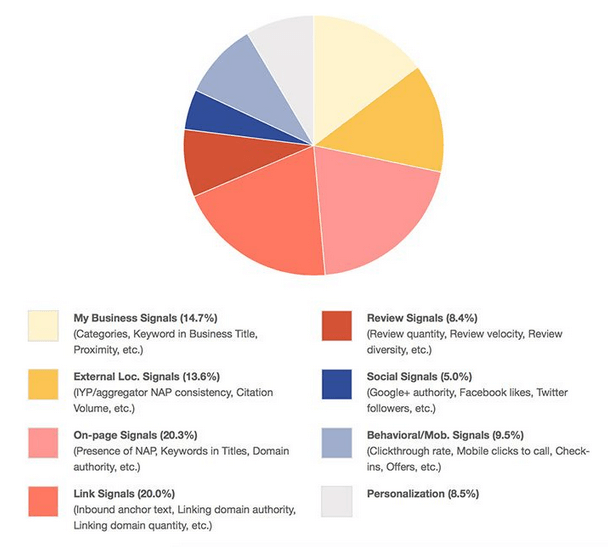The 2015 Local Search Ranking Factors Report is out, and it’s a must-read for anyone in the local SEO arena. As you may know, the survey polls roughly 40 leading local SEO practitioners on what they believe to be the variables most responsible for driving rankings in Google local search results.
David Mihm began the survey independently a number of years ago and now manages it in his role as director of local search strategy with Moz. The survey is very extensive, and I can’t summarize all of it here.
The “snack pack” was top-of-mind for all the participants, but tactical responses varied widely. Below is the high-level summary of the ranking variables and the consensus view of their relative influence.

Source: Moz
The top consideration, according to the group, was “On-Page Signals,” followed by a relatively even distribution of other factors: Link Signals, My Business Signals, External Signals, Behavioral (i.e., clicks, calls, opens) and so on. The big takeaway seems to be an emphasis on quality and the incorporation of an expanding range of signals.
Several local SEOs were arguing to stay the course, get the basics right. Indeed, the most valuable part of the study is probably the individual practitioners’ color commentary on the findings. Below are just a few excerpts:
Darren Shaw, Whitespark
With the new local packs having only three spots, the local organic results have become much more important. We’re putting more effort into content, links and unstructured citations for our clients these days. Media mentions appear to be particularly powerful. Even a single mention in a local paper seems to provide a significant boost to both local pack and local organic rankings.
